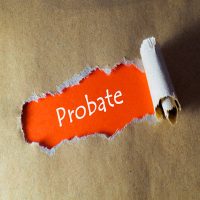Can An Estate Skip Probate In Massachusetts?

The Massachusetts Court System explains that probate is “the process of transferring property and ownership after someone has died.” Unfortunately, probate can sometimes be a slow, frustrating process. This raises an important question: Can you skip probate in Massachusetts? The short answer is “it depends”—some estates in the Commonwealth can bypass formal probate. Within this article, our Boston probate lawyer explains the key things to understand about “skipping” the formal probate process in Massachusetts.
Understanding Probate in Massachusetts
When a person dies in Massachusetts, their estate needs to be settled. Probate is the way that resolution of an estate happens. Here is an overview of the two main “types” of probate:
- Formal Probate: In Massachusetts, formal probate is the more heavily structured process. Indeed, it is a detail-intensive process where the court gets deeply involved into the case. The probate court supervises everything—from the proving of the Will’s validity to distribution of assets. It is not uncommon for formal probate to take more than one year.
- Informal Probate: Informal probate is a simpler and faster way to handle an estate. It may be an option in cases where there is a clear, legally valid Will,no material disputes, and no real estate assets. In informal probate, the court is less involved. The person in charge of the estate (the Personal Representative) can distribute assets and wrap up the estate with less court supervision.
Voluntary Administration is an Alternative Option for Some Estates
Not every estate in Massachusetts actually has to go through a “probate” process. . Instead, the Commonwealth has an alternative option called “voluntary administration” that is available in certain cases. To qualify for voluntary administration, the estate must be deemed “small” for the purposes of the law. In general, this process can only be used when the total value of the estate is $25,000 or less—not counting the value of a car. When available, voluntary administration is often desirable because it is the quickest, least complicated option.
A Lawyer Can Help You Limited Your Estate’s Exposure to Probate
How much of a person’s estate is actually exposed to probate also depends on the plan that they put in place. Many assets can actually avoid probate altogether. For example, property placed within a valid trust will not go through probate in Massachusetts. Along the same lines, a retirement account with the proper beneficiary designation can pass to heirs outside of probate. A lawyer who knows about estates and probate can help in several ways. Your Massachusetts attorney can make the probate process smoother and quicker. Beyond that, on a more proactive level, your lawyer can also help you plan your estate in a way that minimizes the exposure to probate.
Contact Our Massachusetts Probate Attorney for Immediate Help
At Fisher Law LLC, our Boston probate attorneys are skilled and detail-focused advocates for clients. If you have questions about any form of probate in Massachusetts, please do not hesitate to contact us for a confidential consultation. We provide probate law services throughout the Greater Boston area, including Suffolk County, Norfolk County, Middlesex County, Bristol County and Plymouth County.
Source:
mass.gov/info-details/find-out-when-its-necessary-to-probate-an-estate#:~:text=Probate%20is%20the%20process%20of,(owned)%20when%20they%20die.
